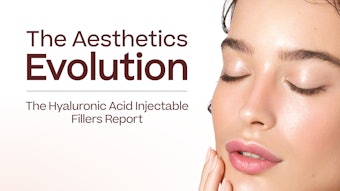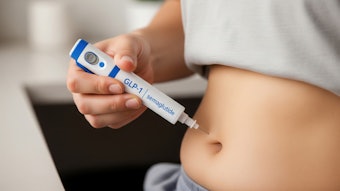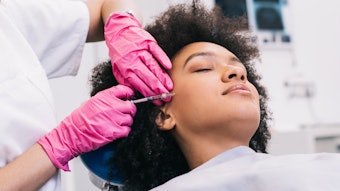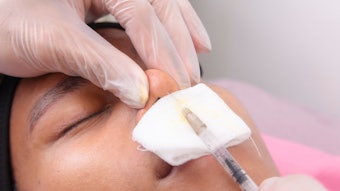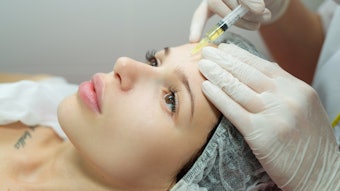
Reports from several U.S. states of harmful reactions to counterfeit or mishandled botulinum toxin injections have prompted the Centers for Disease Control and Prevention (CDC) and the Food and Drug Administration (FDA) to investigate the unverified sources of the product and issue warnings on injectables safety.1 Here is everything you need to know about recent reports of harmful reactions from counterfeit or mishandled Botox injections.
As of May 2024, a total of 15 people from 9 states have reported harmful reactions after receiving injections with counterfeit products, products from unverified sources or from individuals who were not following state or local requirements, per the CDC. Common symptoms include blurry vision, drooping eyelids, fatigue and dry mouth, among others.
"These treatments are among the most common cosmetic procedures performed worldwide, which, unfortunately, leads to illegal and dangerous practices," said Alex Sobel, D.O., FAACS, president of the American Academy of Cosmetic Surgery. "Physicians, practices, Allergan/AbbVie, the FDA and the public must work together for the safe enjoyment of Botox and other neuromodulators.”
All reports came from females, ranging in age from 25 to 59 years, with a median age of 41 years. Overall, 11 people were hospitalized and six were treated with botulism antitoxin because of concerns that the botulinum toxin could have spread beyond the injection site. Of seven people tested for botulism, all had negative tests.
"Misleading advertising can play a role in getting treatment from unlicensed practices," said Danielle Oyasu, N.P., B.S.N., R.N., founder and CEO of Beautifully New. "In this scenario, these providers may falsely claim to be experts in administering Botox without having the qualifications or medical training. I have also seen people use completely unrealistic before-and-after photos to exaggerate the benefits of a Botox procedure. If the cost of the procedure appears too good to be true, it’s not worth the risk."
The FDA previously issued guidance in 2023, recommending that anyone considering a neurotoxin or dermal filler should consult with a licensed provider who is experienced in injecting dermal fillers, knowledgeable about fillers, anatomy, managing complications and the risks and benefits of treatment.
The American Society for Dermatologic Surgery Association (ASDSA) is calling on states to strengthen patient safety through increased oversight of medical care in all settings. The ASDSA stated that these reported cases highlight the need for increased public protection measures, such as the recommendations in the ASDSA’s “Medical Spa Safety Act,” to ensure patients’ safety.
ASDSA president Seth Matarasso, M.D., made a public statement, saying, “ASDSA takes the safety of patients very seriously, and we urge states to consider this in regulating medical practice in all settings of care. It is important to make sure all patients receive FDA-approved products and not counterfeit or otherwise unsafe treatments. Lack of regulation and enforcement has enabled many to offer medical procedures for cosmetic purposes outside of their training and expertise.”
The CDC recommends that medical providers encourage patients to receive injections only from licensed providers who are trained in the proper administration of FDA-approved botulinum toxin, preferably in a licensed or accredited healthcare setting. Some states have a license look-up tool where patients can check if a provider or treatment location has the appropriate license.
“Individuals seeking more than basic aesthetic treatments or skin care must opt for physician-based practices, even if it comes at a higher cost,” explains Cynthia Elliott, M.D., owner and primary practitioner of Skinspirations. “As the complexity of a procedure increases, and with it, the potential for complications, it becomes crucial for individuals to prioritize a physician for their treatment.”
References:
1. https://www.cdc.gov/botulism/outbreaks/harmful-reactions-botox-injections/details.html


